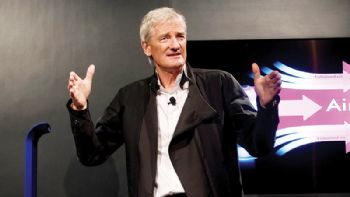
Dyson, the technology company best known for its vacuum cleaners, has scrapped a project to build electric cars.
The firm — headed by British inventor James Dyson — said that while its engineers had developed a “fantastic electric car”, it would not hit the roads because it was not commercially viable.
In an e-mail sent to all employees, Sir James said the company had been unable to find a buyer for the project.
Dyson (
www.dyson.com) had planned to invest more than £2 billion in developing a “radical and different” electric vehicle that would not be aimed at the mass market, and the project was launched in 2016.
In October 2018, the company revealed plans to build the car at a new plant in Singapore, with the first vehicles due to roll off the production line in 2021.
BBC business correspondent Theo Leggett said Dyson wanted to make something revolutionary but also needed to make it pay.
“However, the sums simply did not add up. Sales of electric cars are climbing rapidly, but they still cost more to make than conventional cars, and they generate much lower profits — if any.
Major manufacturers like VW can afford to plough tens of billions of euros into the EV industry, on the basis that economies of scale will ultimately make the technology cheaper and generate returns.
Even Tesla, widely credited with showing everyone else just how good electric cars could be, has burnt through mountains of cash and had to go cap in hand to investors.”
He went on to say Dyson has concluded that it simply cannot afford to “play with the big boys”.
Dyson also planned to invest £200 million in the UK in research and development and test track facilities.
Much of that money has already been spent, and the company said it would use the site for other projects, while the rest of the funds intended for the electric-car project would be spent on developing other products, including its battery technology.
The first cars had already been developed and were being tested, but Sir James revealed in his e-mail to staff that Dyson was closing its electric-car facilities in both the UK and Singapore.
The project employed 523 people, 500 of whom were in UK.